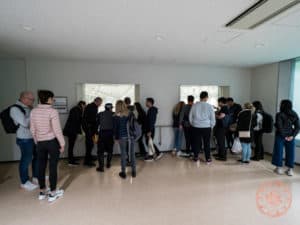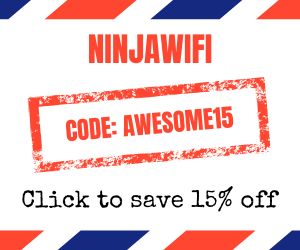It took awhile but Toyosu Fish Market is finally open the transition from Tsukiji Fish Market is complete. If you’re reading this, you probably just realized this but have no idea how this sprawling new space is set up and how it compares wit the legendary Tsukiji. As the world’s largest seafood market and more, Toyosu is dramatically different so here is what you need to know before you go.
This market is dramatically different from its predecessor so in addition to all the details of how to apply for the Toyosu Fish Market tuna auction lottery, I’ll break down what my own personal experience was from my latest trip to Tokyo and how to plan your time at Toyosu.
Don’t miss these articles about Tokyo
- 8 of the Best Ramen Shops in Tokyo
- 12 Day Japan Itinerary
- Ultimate Tokyo Food Guide
- How To Get Around Tokyo
Where to stay in Japan?
- Looking for a place to stay in Tokyo or the best accommodations in Kyoto, these neighbourhood guides will serve you well. Otherwise, make sure you head to my recommended booking platform which is Booking.com which has the best selection of hotels, guest homes, and hostels.
In This Article
Toyosu Fish Market Guide
10 Things You Need To Know Before Visiting Toyosu

To make all of this information easier to digest, I’m going to break this Toyosu Fish Market guide down to top tips that’ll make your Japan trip itinerary much easier to put together.
First of all, you’ll see me call the market just Toyosu Market as well and that is the more proper name of the complex because they are a wholesale market for not only fish but also general seafood and other groceries.
Here’s a video of my experience that gives you a deeper look at the complete experience. Keep scrolling down because the player will stick to the bottom right.
Okay let’s count down my top 10 tips that you should definitely read before heading to Toyosu.
1. Best view of the tuna auction

When one remembers Tsukiji, one thinks about the famous tuna auctions. It was the one of the few places in the world where you could see serious pounds of giant tuna being pushed into the real market. So how does that work now that it’s at Toyosu Fish Market?
In building Toyosu, they had to focus on cleaning up the issues they had at Tsukiji which was that the tuna auction wasn’t organized enough and was too much of a queueing frenzy where you literally had to wake up at an ungodly hour in the morning (2-3AM depending on where you were staying) to get a spot. That’s why they built the entire Fish Wholesale Market Building with this in mind giving visitors two ways to see the tuna auction.
Observation Windows

Observation windows do not require any application or line ups. Once the building opens to the public, you walk in, cross the bridge, and there’s an entire row of windows with a top down view of the tuna auction floor.
PROS:
- Great for photography because of the height angle it offers.
- There are complimentary English speaking guides there so you can ask questions and they can talk more about how the tuna auction works.
CONS:
- The windows are fully sealed which means that you can barely hear what’s happening down below.
- Glass is going to cause reflections for photos and videos.
Observation Deck
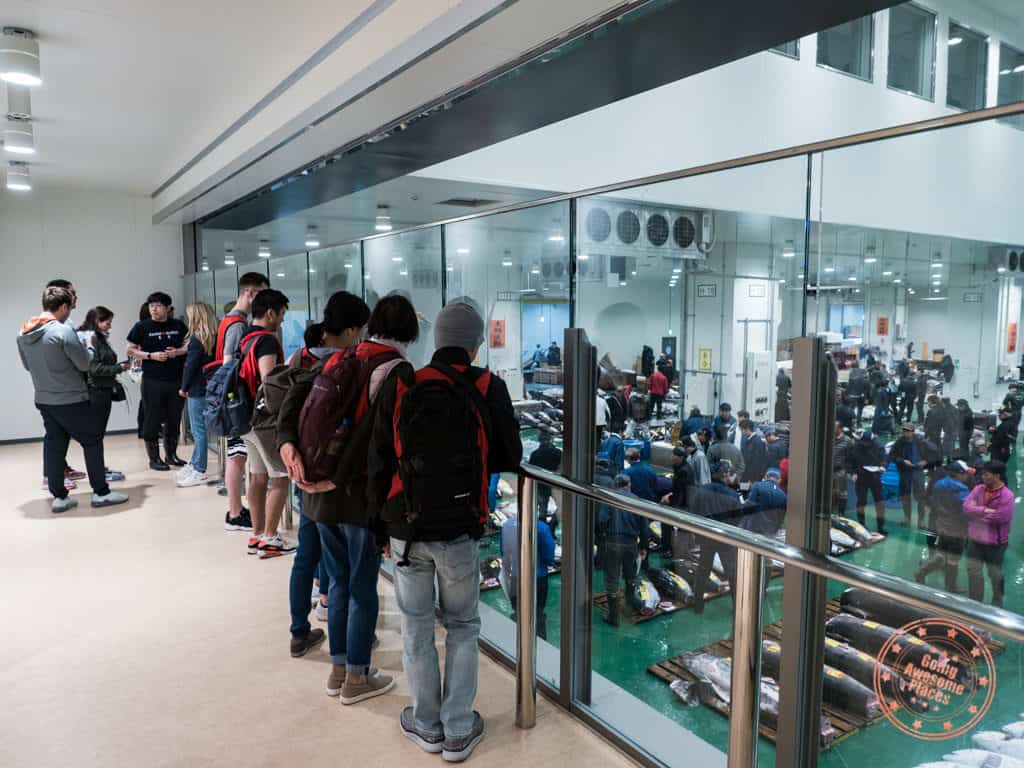
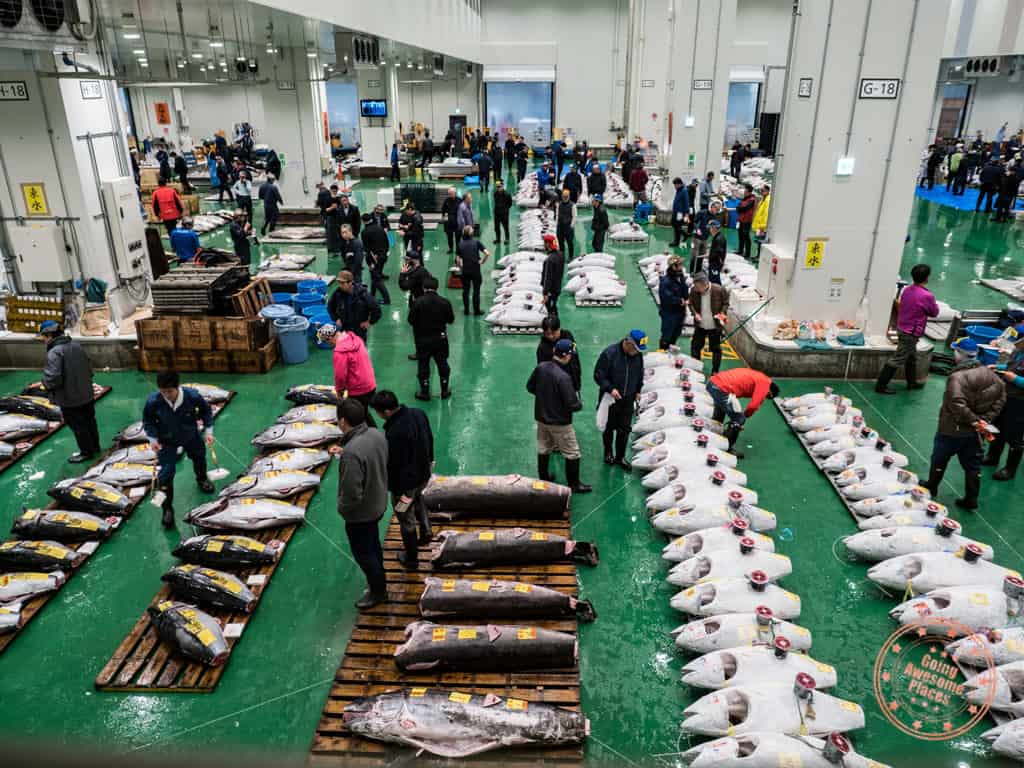
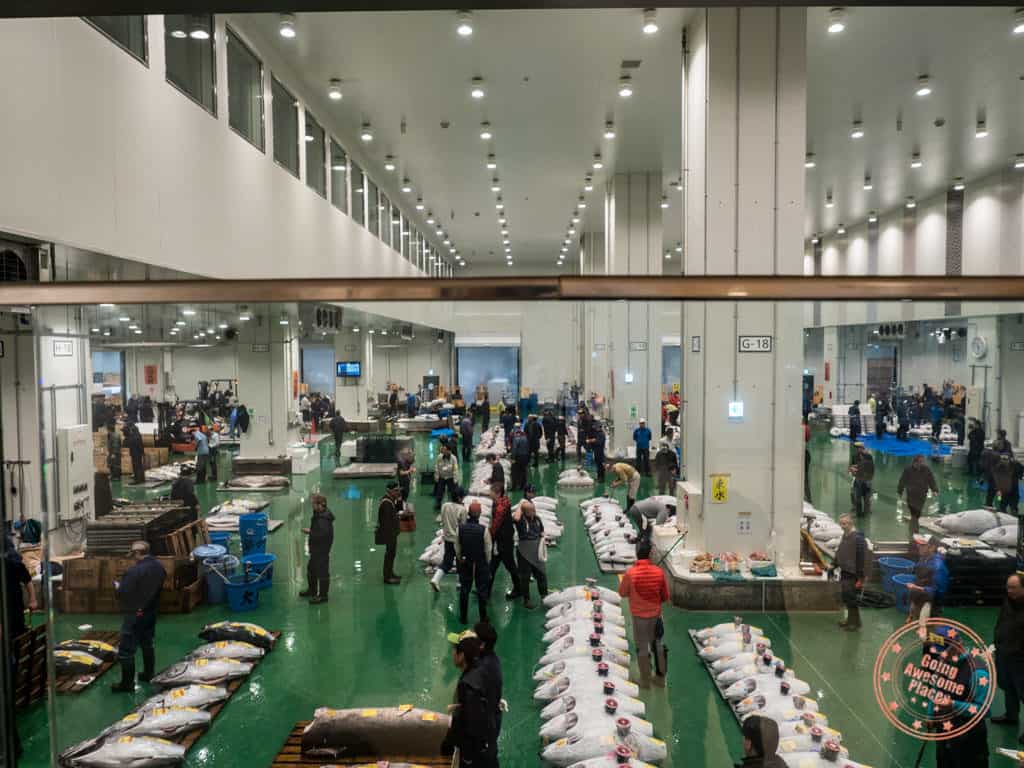
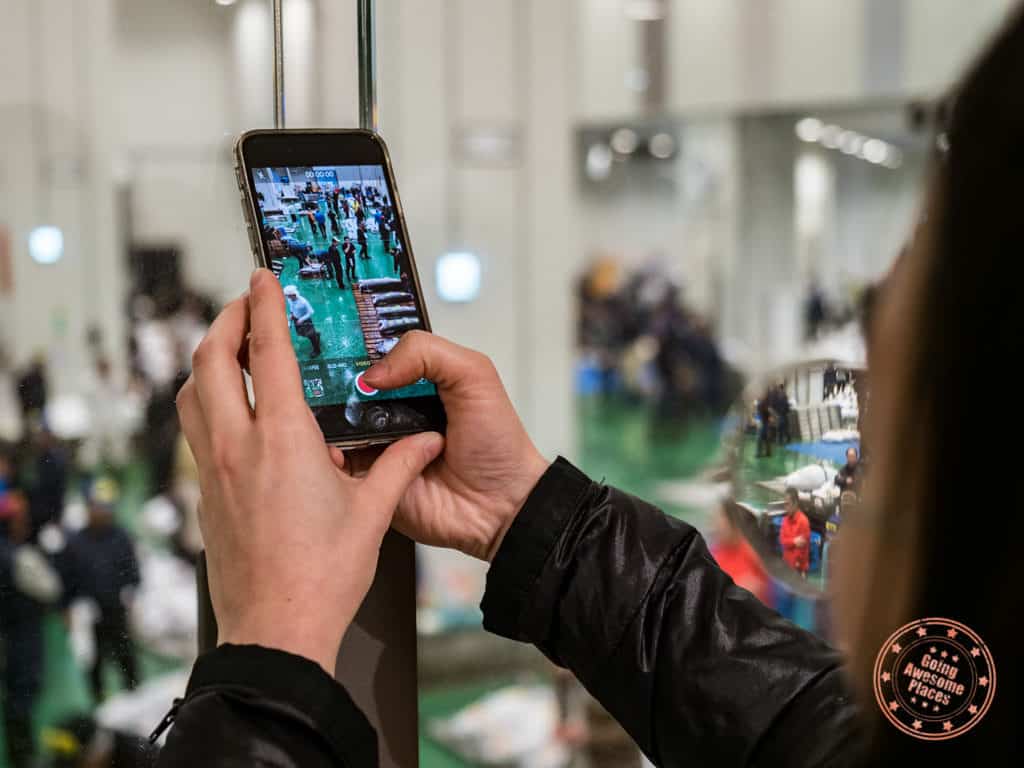
Personally, I believe the Observation Deck to be superior and this might be because I’ve experienced what the Tsukiji Fish Market tuna auctions were like. This is the closest you can get to the action and one level lower from the Observation Windows.
The big difference from Tsukiji is that it’s not first-come-first-serve anymore. They’ve switched to an online lottery system so there’s some preparation needed. That’s why I put together the full process of how to apply for the Toyosu tuna auction so I got you covered.
PROS:
- This deck is only partially closed off by window which means you can hear all the noise happening on the auction floor.
- Much closer to the auction where the rows of tuna are literally right in front of you.
- Small group per time slot so there is quite a bit of space to move around.
- Not that many people know about the lottery system or understand how the new process works so competition isn’t that high for date slots and that also means easily less than the max of 40 per group.
CONS:
- There’s still glass in front of you which means that you’re still going to have reflection issues. That said, if you are tall enough, you can hold the camera up with one hand to clear the glass to get a clean photo/video.
- You will only have 10 minutes there which is enough to see one full auction process but it does go by quickly.
- Not so much a con but it is cold because of the direct air access to the auction floor so make sure you wear a jacket/hoodie.
When does the tuna auction start?
That’s a great question. The tuna auction starts around 5:45AM and continues in various areas of the massive floor until close to 7AM. If you get there at 5AM, there’s still quite a bit to see as they’ll be laying out all the tuna which is quite interesting to watch as well.
The doors for the Fish Wholesale Market opens at 5AM so that is the earliest you can get there. Otherwise you’ll just be waiting outside the door for the guards to unlock it.
What if I missed the lottery?
Many people we met at Toyosu didn’t even know about the lottery so I wouldn’t be surprised if there are a ton of people in this situation. There are two options for you in this case:
- Observation Windows – Just show up early and take in the action from the Observation Windows. There’s no shame in it and you still get to see quite a bit of what’s going on from up there.
- Book a Tour – There are fish market tours that can get you into the Observation Deck. I am not sure how they do it but you can check out this one.
2. Where to line up for the Tuna Auction Observation Deck

I have to add this here because this one really tripped us up when we went.
Once the doors to the Fish Wholesale Market Building we started rushing in with everyone else and what I didn’t realize was that everyone there didn’t have lottery access so all of a sudden we crossed the bridge and found ourselves at the Observation Windows. When 5:30AM came close, we started to scramble to figure out where to meet.

Looking at the lottery confirmation email, it specified “Toyosu Market Block7 Fish Wholesale Market Building 3F PR Center” but honestly herd mentality stepped in which is why we completely missed it since nothing was set up at 5AM when we rushed in.
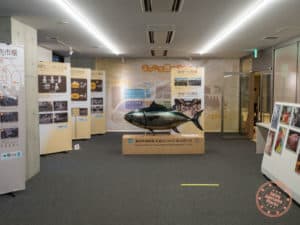
So the spot that you need to be in is actually before the bridge and best described by photos. It’s an inconspicuous corner and isn’t obvious until they set up the queuing ropes. Inside the PR Center, there’ll be a desk where you’re supposed to check-in. They’ll have names on a piece of paper and once you have your passport checked and name ticked, they’ll give you a coloured vest signifying the group you’re in and they’ll ask you to get in line.
Once it’s time for your group, you’ll be escorted by the guards which will take you through the Observation Windows and to the very end where you’ll get access to the stairs that’ll take you downstairs and to the Observation Deck.
TIP: Don’t forget your passport and a print out of your lottery confirmation.
3. Toyosu is far
Unlike Tsukiji which was at least close to the Shiodome and Ginza areas, Toyosu is a new reclaimed section of land that’s even further around the bay. What that means is that it’s not the easiest to get to.
The good news is that there is a subway and elevated train line that can get you there but the bad news is that you have to take the subway plus another separate train line.
How to get to Toyosu Fish Market

If you’re taking transit, it’s a two-step process. Take Tokyo Metro on the Yarakucho line to Toyosu Station. From there, transfer to the Shijo-Mae Station which is just one stop away on the Yurikamome waterfront line.
TIP: Get an IC card like the Suica to make your life easier. Pick one up once you land if you’d rather hit the ground running, pick it up at the airport, or have it shipped to your door.
How to get to Toyosu early?

The challenge with Toyosu Fish Market is that if you want to see the tuna auction and get there between 5AM and 5:30AM, you’ll unlikely be able to take public transit because most lines don’t start until 5AM or later.
As a result, you’ll have to book a cab as we did. I run through that process in the Toyosu lottery guide, who we booked online with, and how much it cost.
Why not stay near Toyosu?
By the argument above, there is reason to consider staying near Toyosu Fish Market. Here are a few places I recommend
CAPSULE HOTEL

This is your chance to try a capsule hotel which you have to do at least once. The property features personal lockers and luggage storage on-site. If you’re looking for a 2-bed capsule private room, they have that too.
AFFORDABLE

This is a hotel close to Toyosu Fish Market that is quite affordable because their base rooms have a shared bathroom. They have rooms with private bathrooms as well. A good breakfast can be included with the booking.
WITH BREAKFAST

A hotel that is on the affordable end of things with 24 hour front desk, private bathroom, free toiletries and rooms equipped with kettles, AC, and TV. A really good breakfast is included with the price.
MID-RANGE

This is a nicer property compared to the rest that reopened in 2018 and features a free buffet Japanese and Western style breakfast and bicycle rental service. Free wifi is also available in what are very spacious rooms for Tokyo.
4. Go when you’re jet-lagged
Now this hasn’t really changed. Every time I go to Japan from North America, I always abruptly wake up in the middle of the night. Take advantage of this by planning your trip to go to Toyosu Fish Market the first full morning that you have in Tokyo.
Japan Trip Planning Essentials and Discounts
If you’re in the middle of booking your trip to Japan, here are the most important places you need to go to book:
- JR Pass – The two most reliable places we always check are JRailPass and JRPass. If you are taking long distance Shinkansen across multiple region, get the full JR Pass. If you’re focusing on one specific area, you only need a JR regional pass.
- Shinkansen – The JR Pass prices have gone up and for many of you, it’ll make more sense to book tickets individually. The secret is that when you buy your Shinkansen tickets through Klook offers special vouchers for Don Quijote and BIC when booking. Their tickets are super easy to redeem as well. Right now, use code SKS10OFF to save $10 USD off.
- Hotels/Ryokans – In Japan, the best website for accommodations, hands down is Agoda. When we’ve compared them against Booking, Agoda consistently came out cheaper.
- Tours – While Viator and GetYourGuide are our go-to’s, Klook and KKDay are much popular in Asia so it’s always worth comparing across all of them to make sure you get the best price.
- Pocket Wifi – While we do love eSIMs, having a pocket wifi is great for sharing data with a large group. The most popular is NinjaWifi which is easy to pick up at the airport. Use code AWESOME15 to save 15% (automatically applied). Alternatives are offered by JRPass and JRailPass but they aren’t as cheap. For a more global solution, consider Solis and PokeFi.
- eSIM – The best one is Airalo. Save money by getting the Japan region eSIM and use referral code WILLIA9500 to get $3 USD credit on your first purchase. From now to Feb 29, the 10GB package is half price as well! Ubigi is another one that we’ve had success with where they uniquely offer 5G coverage. Use code AWESOME10 to save 10% on your first order.
- Car Rental – Big companies like Budget, Avis, and Enterprise operate in Japan but they’re usually the most expensive. The best companies are the local Japanese ones such as Toyota Rentacar, Nippon Rentacar, Orix Rentacar, Nissan Rentacar, and Times Car Rental. To make things easier, use Rentalcars and Klook to compare prices all in one place. Don’t forget, you need an IDP to drive in Japan so get one before you leave your home country.
- Learn Japanese – It helps to know even a bit of the language before you go. Start your learning with Rosetta Stone Japanese.
- Cash or credit – Cash is still very important to have in Japan but when you use credit cards, make sure you’re not getting charged those extra exchange rate fees. The best card right now is the Wise Multi-Currency Card which is actually a debit card where you can convert at favorable rates beforehand. This cuts out any sneaky transaction fees.
- Travel Insurance – Make sure you’re covered in case something happens. Get quotes from Insured Nomads and if you’re from Canada, get quotes from RATESDOTCA.
- Shopping – Discovering Don Quijote is a quintessential part of the Japan experience. The secret for tax-free shopping is that they have a coupon that can help you save 10% off + additional 5% off if you spend ¥10,000 or more.
5. There are 3 main buildings

Instead of one giant complex, they’ve separated the different functions of the market into separate buildings. I’ve done my best to label it in a way that highlights the more pertinent information including where the restaurants are located, where to enter for the tuna auction, where the PR Center is, and what you can find in the different buildings.
The full PDF map in English can be found here.
Fish Wholesale Market Building

This is for sure the focal point of your visit because this is where the tuna auction is held. The Observation Windows and Observation deck is here and you’ll also find a row of restaurants as you walk through. There’s also the Seafood Auction Observation Windows on the just around the corner from the main Observation Windows but when we were there there were only big stacks of styrofoam boxes.
Technically it’s two buildings which is why after you walk in, you’ll pass through all the restaurants and then you’ll cross a bridge before you’re in the second building which houses the auction floor and is technically the Fish Wholesale Market Building. The initial building you’re in and what you see in the photo above is the Management Facilities Building.
Fish Intermediate Wholesale Market Building
This building is packed with things to do. Let’s break them down.

First, you have the Toyosu Gourmet which has almost all of the main restaurants that were always highly raved about at Tsukiji Fish Market. The famous Sushi Dai is here and you’ll also find Nakaya here which I review in the Must-Eat Tokyo Restaurants Guide. It’s a square shaped floor and and pretty easy to navigate.

Do these restaurants still exist at Tsukiji? The short answer is no. There maybe a few that still kept a shop in Tsukiji but for most it didn’t make sense to run two shops.
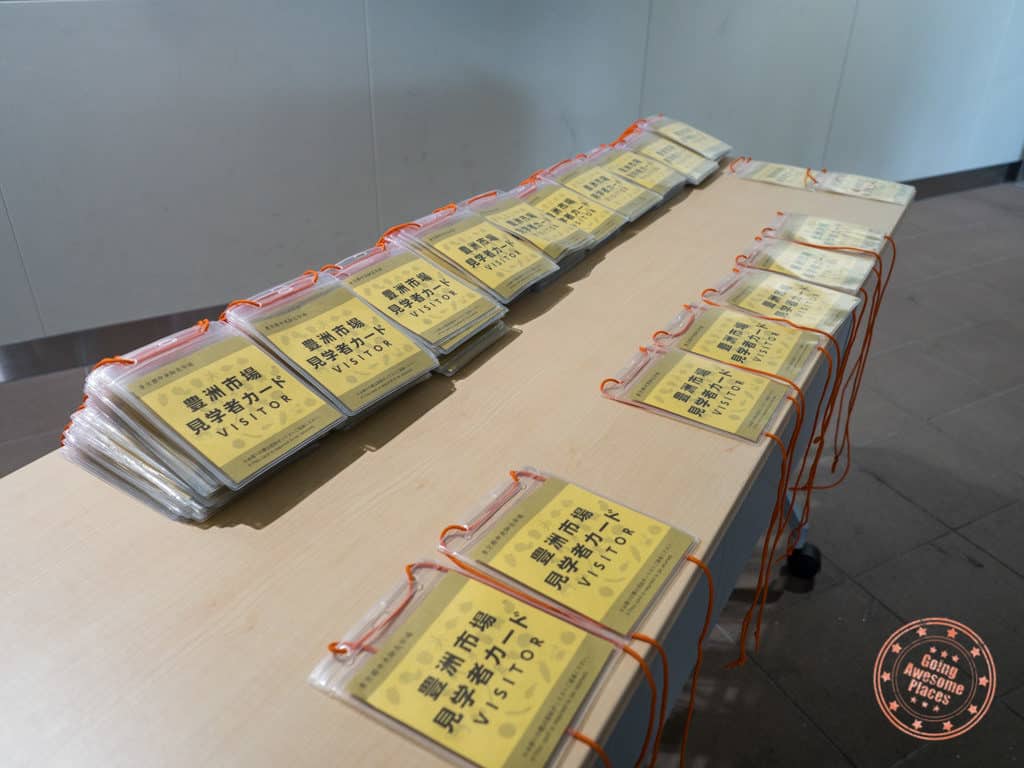

Being the intermediate wholesale building, the main level is an off-limits area where buying and selling of all seafood can be found. As you head towards Uogashi Yokocho Market market, you’ll see a few windows with narrow views down below. Unfortunately there’s not much to see. Note that this part of the building does require you to pick up visitor badges.

Uogashi Yokocho Market is what they call “market-related good shops area”. Here you’ll find various shops that are mostly tailored towards visitors selling anything from kitchen knives (saw quite a few people getting custom engravings), sweets, seaweed, kitchenware, fresh wasabi root, souvenir shops, sake, and more. One thing to be aware of is that the electric trucks zip back and forth here so watch out for them.
This is the perfect place to pick up some souvenirs that you might not’ve gotten through the Japan souvenir guide.
Lastly is the rooftop garden which you can access by taking a number of elevators. More on that in a bit.
Fruit and Vegetable Market Building

The last building is perhaps the least exciting but is connected by skybridge with all the other buildings. The level where you enter in essentially gives you Observation Window access to the market below. It’s one big long corridor labelled by different fruits and vegetables but honestly what you see down below doesn’t correlate.

When you reach the very end of this hallway, it opens up into a giant square room where you can see palettes, and stacks of boxes on the ground. Not exactly the most exciting.
What is exciting is the fact that Daiwa Sushi is right outside this building on ground level. You won’t miss it! When we were there, there was no line at all which really shocked me. Again, I don’t think too many people have figured out how Toyosu Market works but as things start ramping up, expect queues here.
6. Follow the Visitor Route

There’s no fancy name for this but all around Toyosu Market are paper signs that say “Visitor Route”. While certainly nice that there are signs that tell you where to go, I didn’t find it that helpful because essentially it’s just pointing you to the 3 buildings.
Ultimately, you can get to all of the visitor access areas by getting up to the second level sky bridges which connects all of the buildings together. Once you’re on this level, you won’t get lost.
7. Head up to the Roof Garden

The roof of the Fish Intermediate Wholesale Market Building is massive and a big part of the roof is covered in greenery, gazebo, benches, and plenty of walking paths.
The roof is the perfect place to take a break and take in the incredible skyline that presents itself once you make your way up there. Also don’t be shy to really walk from corner to corner as each provides different views of Tokyo.
There are a number of elevators that can take you up there so pay attention to them as you walk towards the restaurant zone of the building. There is also another one on the north side of the building but it’s difficult to get to.
Not a lot of people make it up here so it’s nice and peaceful.
8. Feast at Toyosu

Hands down, the best pairing for an early morning visit to Toyosu Market is to have an epic sushi breakfast. So the question is, where should you go?
The top two pure sushi restaurants are going to be the juggernauts Daiwa Sushi and Sushi Dai. These were the two that consistently had massive lines even before 6AM at Tsukiji. Between the two, they’re both quite comparable so you honestly can’t go wrong with either of them.
It’s truly an orgasmic sushi experience that will ruin all other sushi.

Just keep in mind that it will set you back a bit of cash because even with the set menu (omakase) that you’ll take because you’ll tempted to have more of the juicy scallops, creamy uni, perfect squid, and fatty tuna.
TIP: Bring lots of cash as that’s all they take.
Both new locations is that they’re much more spacious than the Tsukiji Fish Market locations especially Daiwa Sushi. I know some have said the quality has gotten a little worse but having done Daiwa Sushi at both locations, I honestly can’t tell the difference.
One thing that you’ll notice with your experience though is that they do try to rush you through the meal. You’ll be served each piece one at a time. You won’t even need to put any sushi or wasabi on it because it’s already brushed on. Try not to linger around too long because they want to keep the line moving.
How much did it cost? For the 5 of us at Daiwa Sushi, it cost 25,810 JPY ($231 USD) which comes out to $46.20 USD per person. For the quality it’s totally worth it. The omakase itself costs 4,250 JPY.
What does it come with? For Daiwa Sushi specifically, it’s 9 pieces + 6 maki and miso soup (there were real clams inside!!!).

Where? Daiwa Sushi is on the ground floor of the Fruit and Vegetable Market Building. Sushi Dai is in the Toyosu Gourmet section of the Fish Intermediate Wholesale Building. There are also sushi restaurants in the smaller building you need to go through in order to get to the Fish Wholesale Market Building.
9. Shopping at Uogashi Yokocho Market


In the Intermediate Wholesale Market Building is an entire floor of shops. While it doesn’t quite have the same atmosphere that the Tsukiji Outer Market has, I will say that it’s very organized and easy to navigate.
The stores are really a mixed bag of sundries and perishable goods – some of which look like were there to sell to restauranteurs and wholesalers and others clearly tailored to tourists.
This is a great place to pick up some of your food souvenirs in Tokyo.
Some of the highlights you’ll find here are:
- Kitchen knives with engraving make great gifts – Without being an expert, it’s hard to say how good these are versus Henckels Miyabi series but if you trust Japanese quality, you almost can’t go wrong. We spoke to a few people buying knives there and some have bought there before and were back for more.
- Toyosu Market souvenirs – there’s one shop that has Toyosu Market swag if you’re into that. We ended up picking up a sticker for the collection.
- All the snacks – Depending on what you like, there’s a lot of high quality snacks that you can buy here including dried fish, seaweed, tamago, ice cream, crunchy rice cakes etc. There’s a lot of sampling to do here as well.
Again, be careful with the “electric turret trucks” as they call them as they’ll be zipping in and out.
10. Know when its open
When you’re travelling it’s really hard to keep track of the days of the week because it is vacation-time after all. Japan especially is unique in terms of open times because there’s always one day when it’s closed. If you look at all the ramen restaurants featured in the Best Ramen in Tokyo Guide, you’ll see that Mondays or Tuesdays are usually closed but it’s not consistent.
What you need to know is that Toyosu Market is open from 5AM to 5PM. It’s closed on Sundays, public holidays and select days throughout the year. That’s for the general market and most restaurants and shops will follow this but it could vary.
Take a look at the Toyosu Central Wholeasle Market calendar to see when those closures are to make sure you plan your Tokyo itinerary around it. It’s easy to read – anything in red on the calendar is a closure.
Is it worth going to Toyosu Fish Market?
The transition from Tsukiji to Toyosu was a long time in the making but was absolutely necessary because the demand or it from a tourism and a wholesale business perspective outgrew what was there and the aging infrastructure was starting to show.
What made Tsukiji Fish Market so special was how you could really immerse yourself in the chaos of all the action that happens when you push through 5 million pounds of seafood a day. The excitement of being on the ground whether it’s the trucks zipping through, mountains of styrofoam boxes piled high, the smell of fresh seafood, workers running equipment band and forth, is what I remember the Tsukiji experience to be.
My initial thoughts

I’ll be honest, the whole time that I was at Toyosu Market whether it was walking through the echoey hallways of the Fruit and Vegetable Wholesale Market, peering through the Observation Windows, or even being on the Observation Deck, I couldn’t help feeling that I was walking through the hallways of a hospital – incredibly clean, clearly labelled, and also devoid of any character or fun. It’s clearly a place of business and we are the voyeurs invited to watch.
While they’ve surgically improved the market in all facets of organization, process optimization, and making the experience easier for everyone to enjoy, I really missed being able to be shoulder to shoulder to the buzz and action. While I’m sure the workers are glad they no longer need to yell at us to get out of the way or tell us we’re in an off-limits zone, there’s definitely something missing.
It comes down to one word, the “magic”. They’ve stripped it away and what you have left is something similar to an aquarium where once you’ve gone scuba diving, it almost makes it hard to go back.
Wait, so is it worth it?

The counterpoint to everything above though is that if you want to get an appreciation for what the wholesale experience of food goods and to see one of the biggest tuna auctions go down, there’s really nowhere else you can go other than the Toyosu Fish Market.
Ultimately, I still think it’s somewhere that’s worth going to especially if you can take advantage of a bit of jet-lag. Go early in the morning, think ahead and lock in the Observation Deck experience, have an amazing sushi experience, and then get an jump start to exploring the rest of Tokyo.
Best of both worlds
Most people think that Tsukiji is fully shut down. While the commercial portion of the complex is closed, the areas built for tourists, better known as the Tsukiji Outer Market is still open for business.
What I recommend is that you do the Toyosu Market and then at a later time when you’re exploring Ginza, make the walk down to Tsukiji and capture the atmosphere and energy that is still there when you walk through the narrow streets where you can find a lot of the same vendors that have stayed. It’s still a haven for snacking and fresh seafood so definitely don’t miss out.
If you want to do a combo experience with a local, you should also check out these experiences:
VIP Tuna Auction and Special Access at Toyosu Fish Market – This gives you access to the tuna auction with an English guide who can provide detailed commentary of what you’re seeing. In addition, you’ll get insider access to the Fish Wholesale Area which normally is off limits to visitors. 4 hour duration.
Luxury Sushi Class and Special Access at Toyosu Fish Market – This is a unique tour that combines a visit with the master chef in the wholesale area (not open to the public), followed by a sushi-making class. 4 hour duration.
Toyosu Market and Tsukiji Food Tour with Government-Licensed Guide – This is a 4 hour tour that combines the new Toyosu with the old Tsukiji. This is with a licensed guide but note that they won’t take you to the tuna auction observation deck and only the observation windows.
Fish Market Food Tour in Tokyo – Another tour that runs for 3 hours that doesn’t include the tuna auction but they cover both Toyosu and Tsukiji fish markets.
Frequently Asked Questions
Yes, it’s worth it as it’s the only way to get close to the tuna auction and be able to hear the sounds.
Yes, both the lottery for the Observation Deck and fully open Observation Windows is free.
Yes, Toyosu Fish Market is currently open to the public including international travellers post-pandemic. You must wear a mask, disinfect your hands, and your temperature will be taken.
3 groups of 40 can get in for 10 minutes at a time between 5:45AM and 6:15AM.
Lottery applications open for roughly 10 days each month, for a spot the following month. Pay attention to the official tuna auction page (translate the page from Japanese to English) as the schedule changes month to month.
The fish market building where the tuna auction occurs each morning is open from 5AM – 5PM.
Need a JR pass for your Japan trip?
You’re probably planning your trip to Japan and if you’re going to be jumping from city to city, I still think the JR Pass is the way to go. Check it out and do the math to see if it works to your benefit!
Have you been to both fish markets? I’d love to hear your thoughts about the differences. For those planning a trip to the Toyosu Fish Market, is there anything else that you’d like to know? Drop a comment down below!
What you should read next
